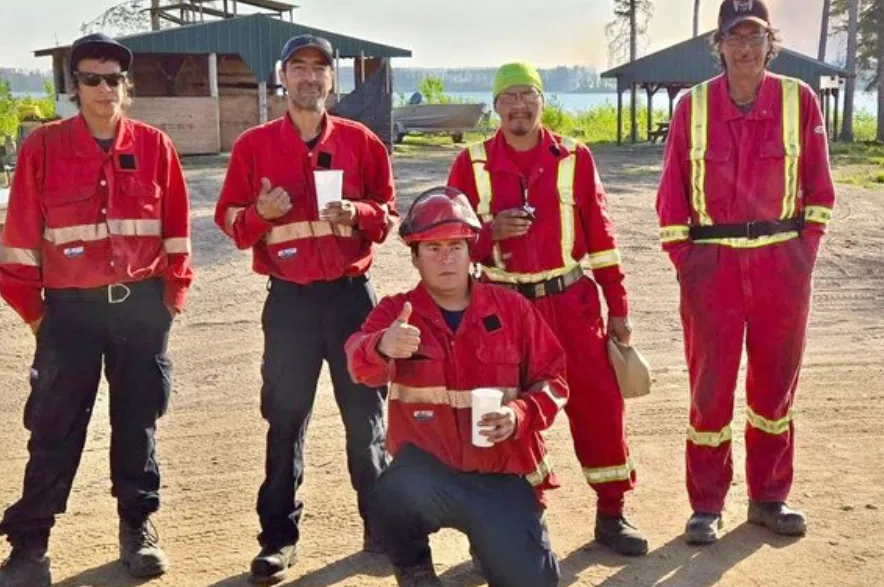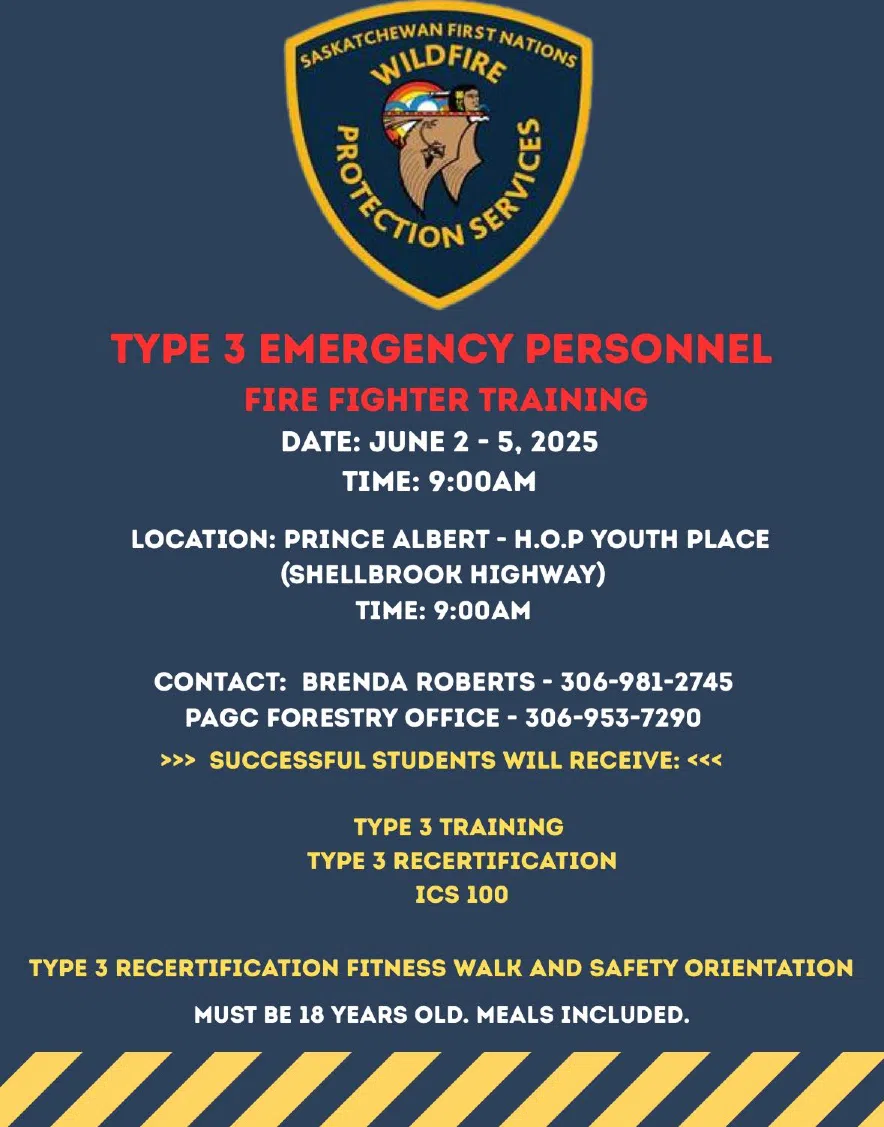Saskatchewan Premier Scott Moe issued a call for inactive firefighters to reach out and sign up to help battle the blazes burning hundreds of thousands of acres of Saskatchewan forests at a news conference in Prince Albert on Thursday.
Previously, the Saskatchewan Public Safety Agency (SPSA) said that all of their resources typically required for the fire season had been deployed and provincial resources were stretched thin.
Read more:
- Housing Sask. wildfire evacuees becomes more and more challenging
- Saskatchewan communities coming together to support evacuees and firefighters
- ‘We’re fortunate’: Cabins saved in Lower Fishing Lake wildfire, majority of forest burns
“For individuals who have training and certification in wildland firefighting, we ask that you report to your nearest firebase and identify yourself as available and we’re going to try to find a northern community for you to defend,” Moe said.
That was good news for leaders tasked with helping suppress those fires and evacuating the thousands of residents who are under threat.
“I think it’s really welcomed. We are really thankful for that,” said Chief Tammy Cook-Searson, of Lac La Ronge Indian Band (LLRIB).
Her band joined Peter Ballantyne Cree Nation and Montreal Lake Cree Nation in issuing a joint State of Emergency on May 28.
Prior to that, several northern communities including Pelican Narrows, Denare Beach, Hall Lake, Southend and Montreal Lake had been evacuated. Some of the evacuation routes were cut off by the wildfires, including Hanson Lake Road (Highway 106) and Highway 2.
Cliff Buettner, who retired from the Prince Albert Grand Council’s (PAGC) emergency protective services just two months ago, was called back to work to help out in what has become the busiest spring wildfire season in decades.
He said it’s hard to put an exact number on how many firefighters are needed because the nature of fire is that it changes quickly.
“It turns the situation because of the intensity of the fire, so you can’t really put people in it or emergency personnel. Resources in the province right now are busy,” he said.
Buettner said it was too early to know the level of response that Moe’s appeal would result in, but he is confident people will step up.
“I know that there are individuals that are certified and qualified and they’re being organized within the provincial fire districts,” he said.
“They’ve already put out those requests for assistance from other jurisdictions. Any help is welcome at this point in the game and it’s the end of May. This could be a long summer and they’re not anticipating a lot of rain.”
A call has also been put out by the PAGC for people to train as Type 3 wildland firefighters.
Training will run from June 2-5 at the H.O.P. Youth Place on the highway to Shellbrook. This can be for new certifications or re-certification. People can call the PAGC forestry office for information at 306-953-7290.
In LLRIB, Cook-Searson said there has been response to the callout but not as much as she would like to have seen.
“It’s not as large as we want. We are still calling out on people to come out and do the training and get certified, so that way when the call gets out, when they start getting hired, we are able to hire them right away and get them on the lines because the more people we want get trained and certified, then we can get them on the line out there,” she said.
Sucker River has also issued an invitation for people to sign up for training.
Funding for firefighter training
In March, the federal government announced a $16.3-million investment in 25 projects through the Government of Canada’s Fighting and Managing Wildfires in a Changing Climate Program (FMWCC) training fund to increase fire management capacity across the country.
Saskatchewan was to receive more than $1.4 million of that for four projects:
Project name: Prince Albert Grant Council Fire Guardians Pilot Project
Recipient: Prince Albert Development Corporation Management Co. Ltd.
Location: Prince Albert, Saskatchewan
Funding from NRCan: $946,330
Project summary: This project supports the training of 20 youth in wildfire prevention and mitigation by providing opportunities for skills development and job coaching in the wildland fire industry. This will aim to address the need identified by the communities to improve local and regional capacity in northern fire-prone regions.
Project name: Fire for the Future
Recipient: Muskeg Lake Cree Nation
Location: Marcelin, Saskatchewan
Funding from NRCan: $204,093
Project summary: This project supports the training of 30 community members in wildland fire training to address the need of the community to alleviate and mitigate the dangers of a wildfire by building capacity of First Nations in the region.
Project name: MLTC Community Wild Fire Preparedness
Recipient: Meadow Lake Tribal Council
Location: Meadow Lake, Saskatchewan
Funding from NRCan: $278,000
Project summary: This project supports the training of 170 participants to a Type II and III standard to address the communities’ identified need for additional support for wildfire training to increase their capacity to prepare for and respond to wildfire events.
Project name: Onion Lake Cree Nation Wildland Fire
Recipient: Onion Lake Cree Nation
Location: Onion Lake, Saskatchewan
Funding from NRCan: $31,050
Project summary: This project supports the training of 16 firefighters to a Type II standard to address the identified need of Onion Lake Cree Nation for a well-trained local response team aiming to enhance community capacity and ensure an effective response to future wildfire events.
— by Susan McNeil
Read more:












